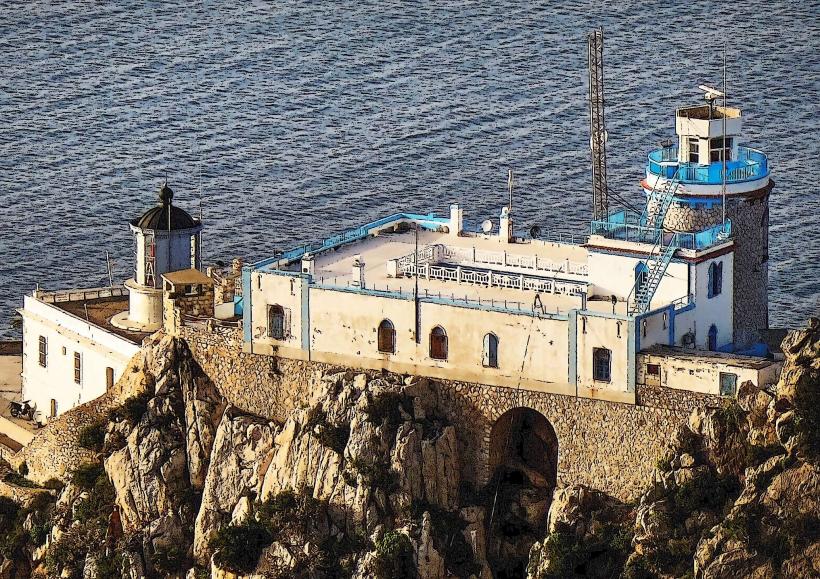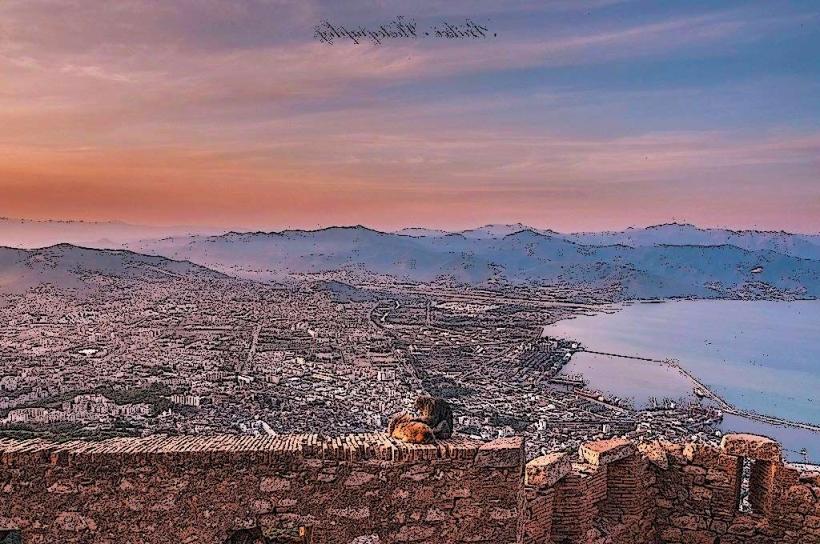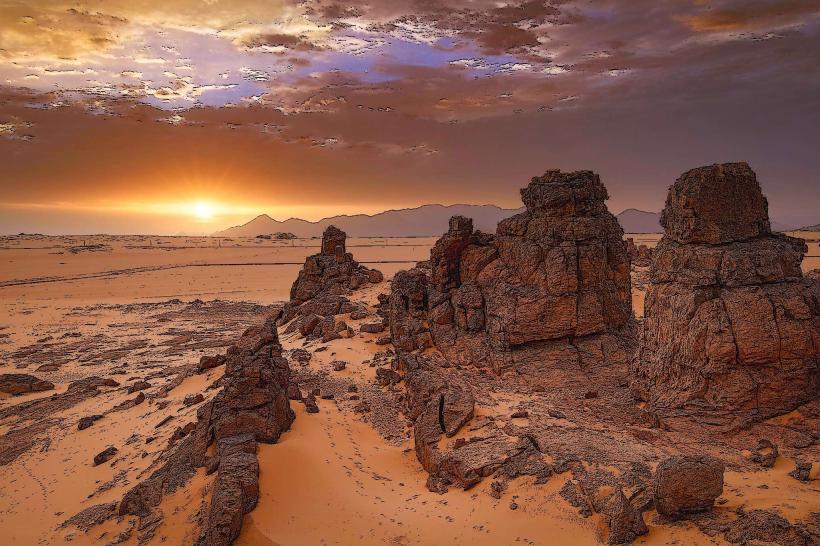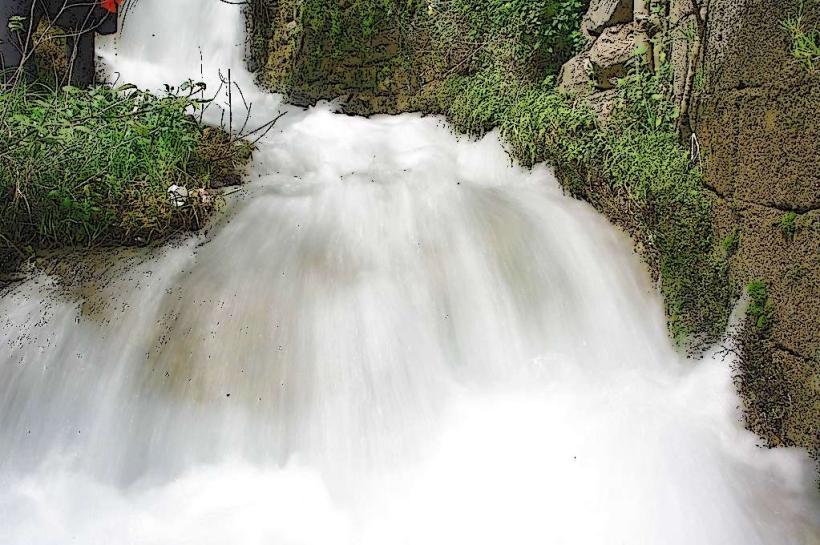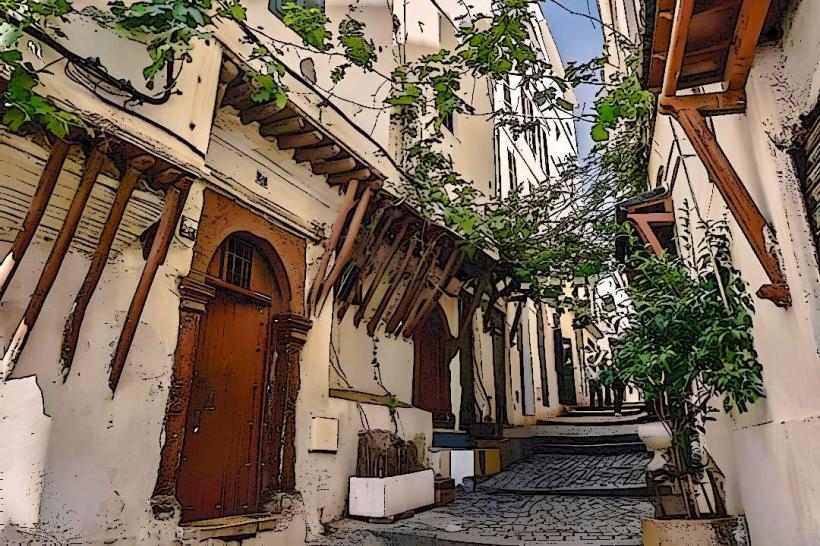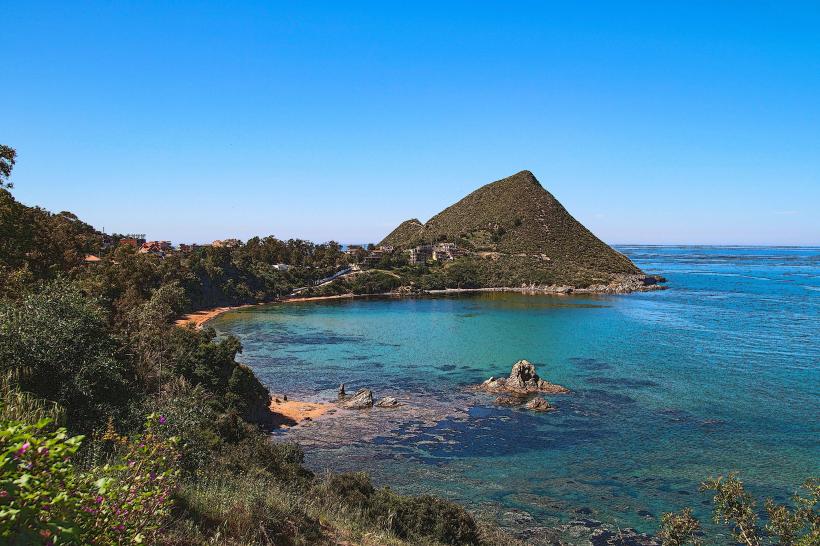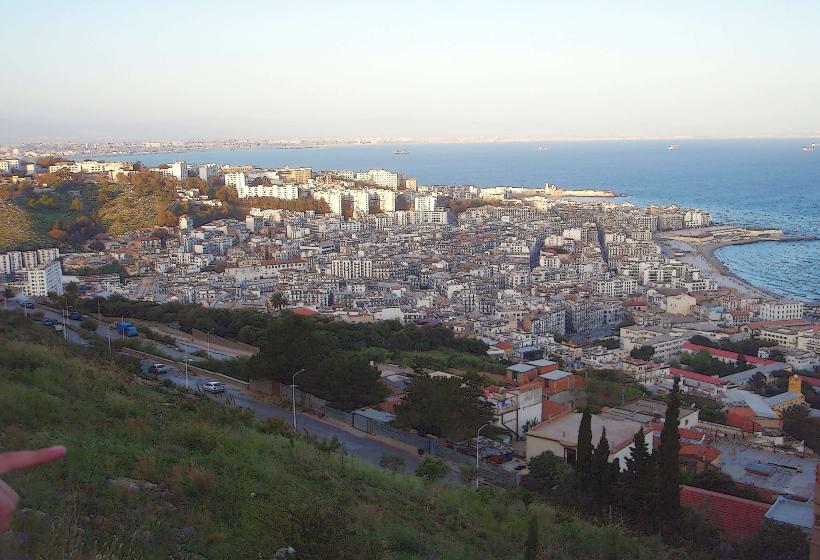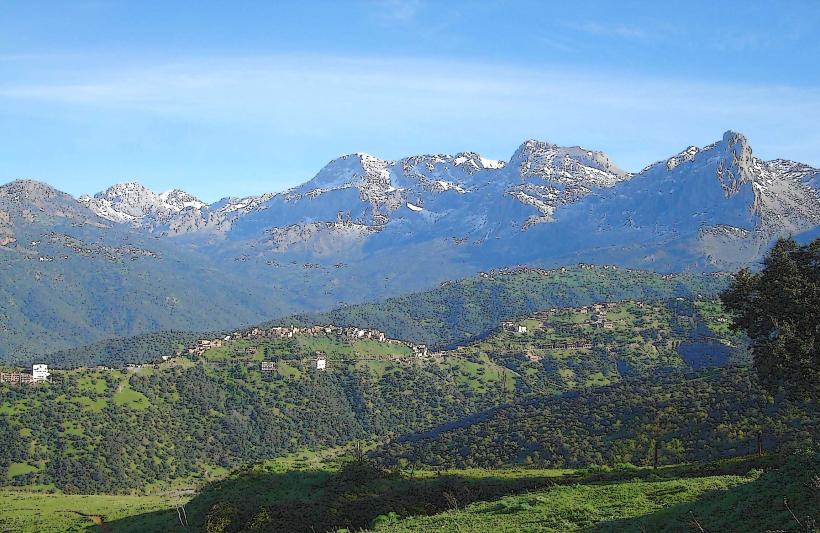Information
Landmark: National Park of GourayaCity: Bejaia
Country: Algeria
Continent: Africa
National Park of Gouraya, Bejaia, Algeria, Africa
The National Park of Gouraya is a protected natural area situated on the Mediterranean coast near the city of Bejaia, Algeria. It encompasses mountainous terrain and coastal zones.
Visual Characteristics
The park features rugged, rocky hillsides covered in Mediterranean scrub vegetation, including pines and holm oaks. The coastline consists of steep cliffs and small, rocky coves. The sea water is typically a deep blue, with clear visibility in shallower areas. Elevation ranges from sea level to approximately 660 meters at the summit of Gouraya Mountain.
Location & Access Logistics
The park is located approximately 5 kilometers west of Bejaia city center. Access is primarily via the N12 national road, with a turn-off onto local roads leading to park entrances. Parking is available at designated points near the main entrances, though capacity can be limited during peak periods. Public transport options include local buses (e.g., lines serving the western suburbs of Bejaia) that stop near the park's periphery, requiring a short walk to the entrance.
Historical & Ecological Origin
The park was established to protect the unique Mediterranean coastal ecosystem and its biodiversity. Geologically, the area is characterized by Mesozoic limestone formations. Ecologically, it represents a transition zone between marine and terrestrial Mediterranean environments, supporting a variety of flora and fauna adapted to these conditions.
Key Highlights & Activities
Hiking is a primary activity, with marked trails leading to viewpoints and the summit of Gouraya Mountain. The coastal paths offer access to secluded coves for swimming and sunbathing. Birdwatching is possible, particularly for migratory species. Photography opportunities exist for the coastal landscapes and mountain vistas.
Infrastructure & Amenities
Basic amenities are present at the main entrance points, including limited restroom facilities. Shade is provided by natural tree cover in some areas. Cell phone signal (4G) is generally available in higher elevations and near populated access points, but can be intermittent within dense vegetation or deep valleys. Food vendors are typically found near the main access roads outside the park boundaries.
Best Time to Visit
The best time for hiking and outdoor activities is during the spring (April-May) and autumn (September-October) when temperatures are moderate. Mid-morning (9:00 AM - 11:00 AM) and late afternoon (3:00 PM - 5:00 PM) offer optimal lighting for photography, avoiding harsh midday sun. Swimming is best during the summer months (June-August).
Facts & Legends
A local legend associates the name "Gouraya" with a female saint or hermit who lived in the mountain caves. The mountain itself is a prominent landmark visible from Bejaia, often referred to as "the sleeping woman" due to its profile.
Nearby Landmarks
- Cap Carbon Lighthouse (1.5km East)
- Bejaia Kasbah (4km East)
- Port of Bejaia (4.5km East)
- Plage de Aokas (5km West)

